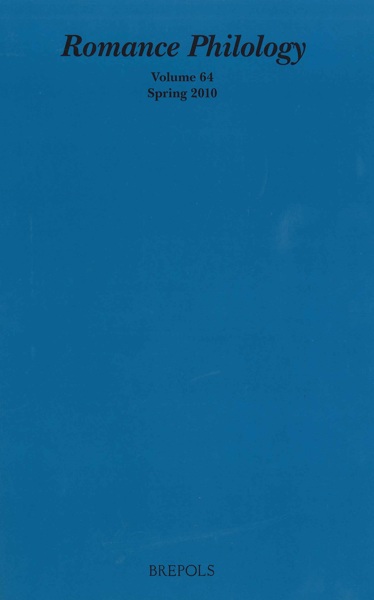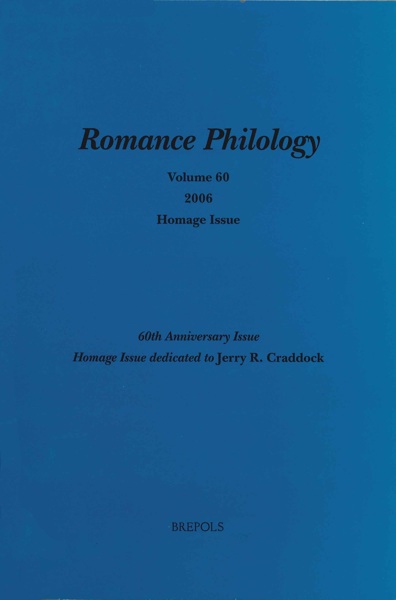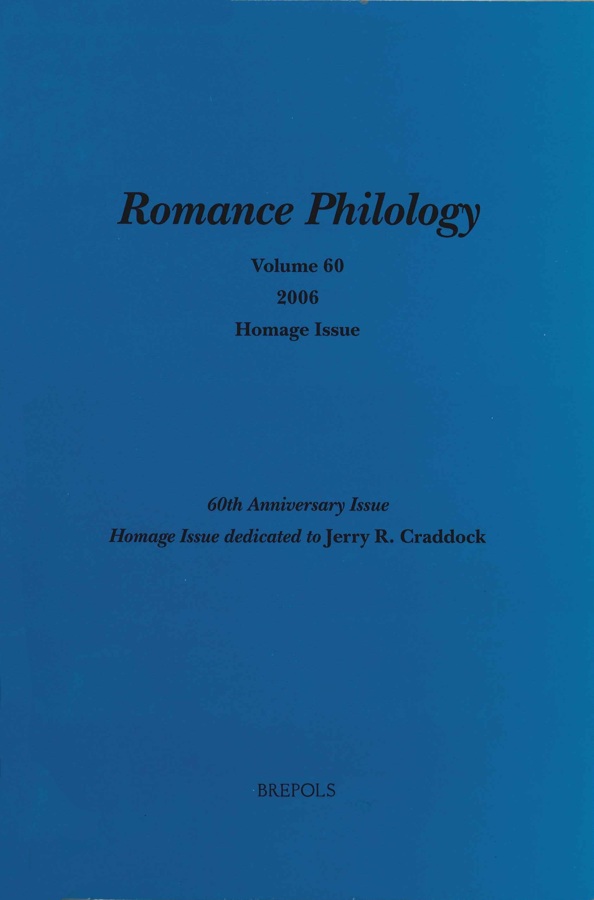
Romance Philology 60 (Fall 2006)
- Pages: 242 p.
- Size:160 x 240 mm
- Language(s):English
- Publication Year:2007
- € 71,50 EXCL. VAT RETAIL PRICE
- ISBN: 978-2-503-52402-3
- Paperback
- Out of Print
- E-journal
- Available
S. N. Dworkin, Introduction
A Nearly Definitive Auto-Bibliography
Articles
J.R. Craddock, The Romance Descendants of Latin cancer and vespera – Spanish in North America – Las categirías derivacionales de los sufijos átonos: pícaro, páparo y afines – Lexical Analysis of Southwest Spanish – The Contextual Varieties of yod: An Attempt at Systematization – New World Spanish – Portugués antiguo sandeu, castellano antiguo sandío ‘loco’ – Descending Diphtongs and the Regular Preterite in Hispano-Romance – The Diphtong /ay/-/ey/ in Toledan Mozarabic – La General estoria, Parte IV, de Alfonso el Sabio y la síncopa nominal y verbal en el español alfonsí – Castellano antiguo nasco ‘nació, visco ‘vivió’ – Historia del español en los Estados Unidos – A Small Old Spanish Mystery: Why Wasn’t *did(e) the First Singular Preterite of dar ‘to give’? – Spanish Place Names in the United States – Systematic Vowel Shifting in Vulgar Latin and Middle English – Spanish in the United States




